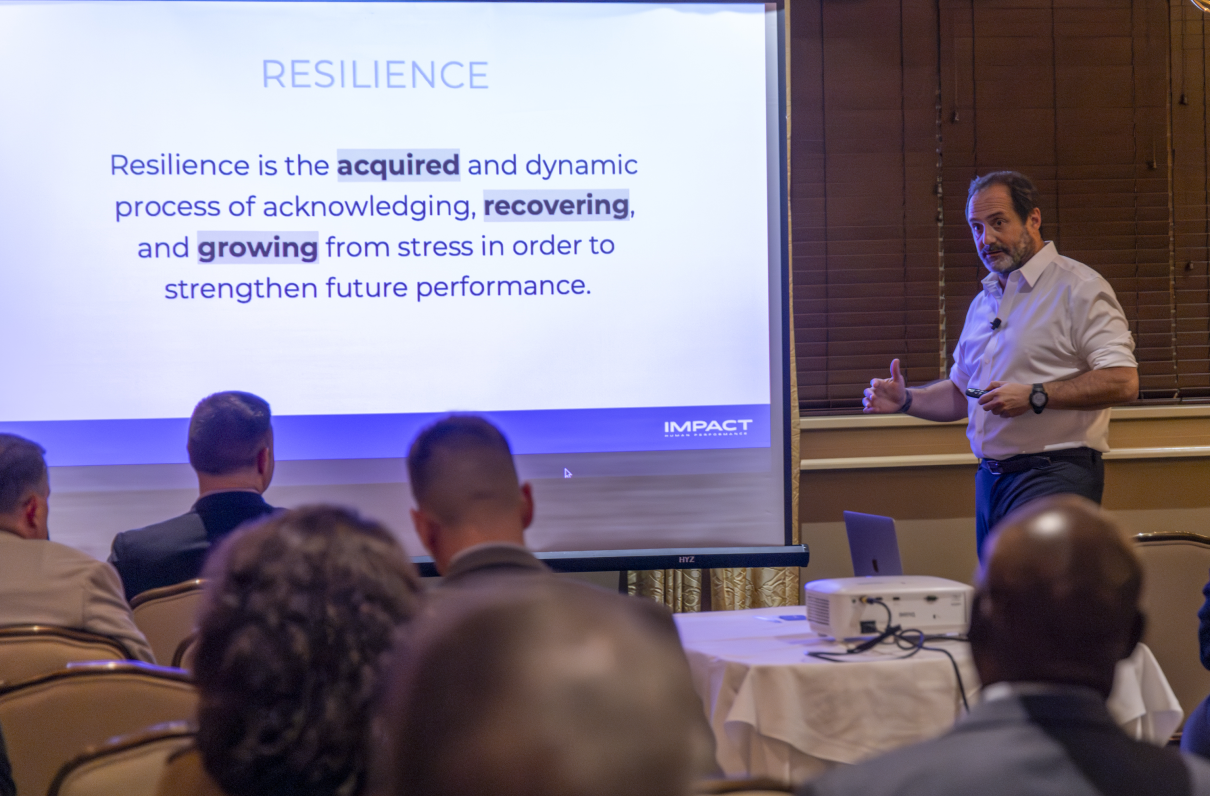By Joelle Cox
New job? Current career dragging you down? Life just getting in the way? We get it!
Whether you’re a transitioning servicemember who has started the job search process, a military spouse with a career on the move, or a military retiree preparing for civilian retirement, we all face professional or personal stress at points throughout our life.
But just because stress is commonplace doesn’t make it any less dangerous: Numerous studies have shown long-term exposure to stress and increased cortisol levels can have disastrous effects on our health. Have you ever gotten sick during your scheduled vacation time? Chronic stress could be the reason.
In today’s era of prioritizing mental health, MOAA wants to provide the tools you need to meet your goals, both professionally and personally, while effectively managing stress. Here’s some advice from a recent MOAA webinar entitled Beyond the Uniform: Maximizing Performance featuring Nick Propper, chief executive officer of Impact Human Performance. His invaluable health and wellness guidance, and techniques on how to optimize personal and professional performance, may help you find your peace in the chaos of life.
(MOAA Premium and Life members can access more helpful information at MOAA’s webinar archive.)
Embrace Your Emotions
Learning to manage stress can be quite difficult, but a big key in beginning that process is learning to regulate our emotions. Emotional regulation helps build our resilience -- the way we respond to stress.
“As sophisticated as the brain is, the one thing it’s really not good at is differentiating between the things to be dangerous to the organism. You’re the organism; its job is to protect you,” Propper explained. “When it gets into this survival mode, it doesn’t differentiate between a genuine life-or-death situation or an email landing in your inbox that you don’t like the look of. It fires off the defense system in the same way.”
Our ability to properly regulate our emotions depends on two crucial variables, Propper said: the quantity of energy and the quality of our energy. Propper depicts how these variables determine our emotional bandwidth in a four-quadrant graph:

- High Performance: These high-energy growth emotions include feeling energized, optimistic, and passionate.
- Intentional Recovery: Low-energy growth emotions including feeling peaceful, calm, and receptive.
- Stress Response: High-energy survival feelings include frustration, anger, and anxiety.
- Forced Recovery: Low-energy survival emotions include exhaustion, depression, and despair.
Impactful Recovery
Propper asks, “Why do you never let your cellphone run out of battery? Why do you never let that energy get below zero?”
The answer: Phones have a visible battery-life gauge, and most of us have easy access to accessories that will help us keep the phone charged.
“If we have the skills and resources to prevent our phones from getting too low,” Propper said, “we can apply the same behaviors to save our emotional batteries as well.”
Build a Recovery Menu
“As busy or important as you may be, everyone has 60 seconds to slow down to begin recovery”, Propper said.
He recommends building a recovery menu for simple things you can do to begin intentional recovery. These small moments – varying from 1 to 5 to 15 minutes throughout the day – can be beneficial and productive for the brain.
When we allow our brain to decompress and organize the immense information we are pouring into it, we often find clarity in whatever issue that may be causing us stress, Propper said.
Joelle Cox is a member service representative at MOAA.
